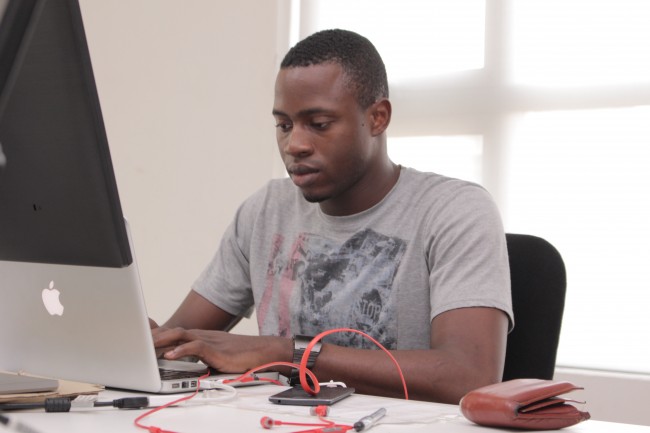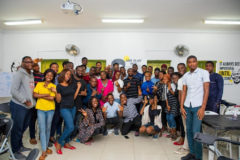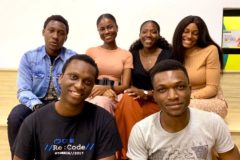A diverse group of individuals tell us how they began their career in programming. Read them here.
Omoloro Oyegoke shares his story.
***
Omoloro Oyegoke
I have always been rather restless and inquisitive. As a child (and even till now), I was very eager to explore the world and try out new things. Every new piece of knowledge was an adventure in itself.
Growing up in the mid to late nineties meant experiencing an unprecedented rate of technological advancement. It was fascinating using the command line on Windows 3.1 to start GUI games and I was engaged by the educational softwares in primary school. It was fun playing games that improved my intellectual capabilities and affinity for music, but certain nagging questions arose that I couldn’t shrug off. What made it work? How did it all fit in together? Who were the people that created these things? As an infant, I already knew I would be an “Engineer-er” and after learning while watching CNN in 1999 that Bill Gates earned $200 a second, it was decided – I would be a Computer Engineer!
Fast forward two years later, I was in secondary school and we finally had a family computer in the house. I exerted some tyranny over the system and eventually there was little resistance from the rest of the family when I just moved it to my room. In school we did a bit of BASIC, but it was mostly on paper and I’ve never been a fan of paper programming (I’m one of those coders who may not survive without an integrated development environment). I dabbled into Microsoft FrontPage a bit but to be perfectly honest, I spent a great deal of those years playing Microsoft Flight Simulator and Ultimate Soccer Manager. The curiosity for what made the software tick was still there, but for a while, I was more interested in learning how to be a good virtual pilot.
I consider my first lines of code to be some HTML I played with during a holiday in my first year of university. The hardcore coders who started with C and machine language are probably laughing at me right now, but those moments messing around with markup gave me valuable insight into how a computer thinks. A few months later I purchased Java: How to Program (6th Edition) by Paul and Harvey Deitel and things started getting real. I spent a few months learning Java in notepad and eventually realised that knowing the syntax was a tiny speck in the world of software development. Reading JHTP and working through it’s exercises was a beautiful experience and beyond Java, it taught me many core principles of software engineering. I remember my ecstasy when I finally understood the Object-Oriented Concept on the 26th of December 2008, and how obvious SOLID principles and many design patterns then seemed subsequently. From Java I quickly picked up C# (which is my favourite till date), then PHP, Javascript, and a few expeditions into other platforms.
For me now, coding is less about languages and platforms but about composing the most elegant solution to solve a special problem. To be honest, I have my fair share of dirty hacks under my belt, but every once in a while there’s a function or class that makes me feel I’ve actually created a masterpiece. I still haven’t lost the thrill I get when I hit compile and the IDE says “success”, or run the test suite and “all tests passed”. On the other hand many nights I wake up from very visual dreams of bungling bugs and taxing tasks. The life of a coder is definitely an emotional roller coaster. The highs are epic, the lows are depressing, but I wouldn’t trade it for anything.
How did I learn to code? This story isn’t complete yet because everyday, with each new challenge, I try to solve, all the different projects I work on, and the very next line I write, I keep learning how to code.
***
Omoloro Oyegoke (@omoloro) is a software engineer at Konga Online Shopping Ltd. He tries to read classical novels and play basketball, table tennis, foosball, and strategy games when he is not “doing stuff” on his computer.
Do you want to share how you got started coding and your experience so far? Go HERE to see how to do it.
Photo Credit: Olayode ‘kielsoft’ Ezekiel





















